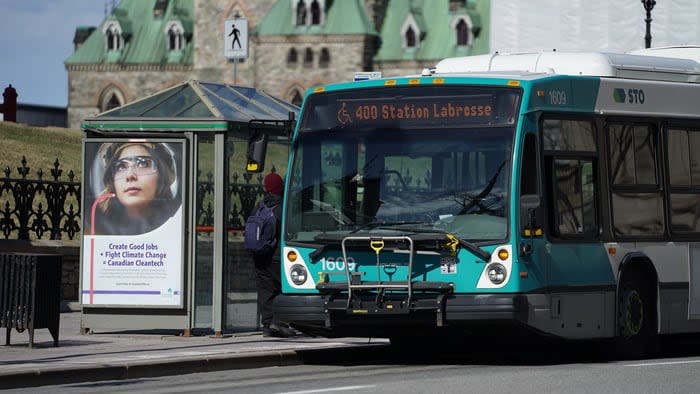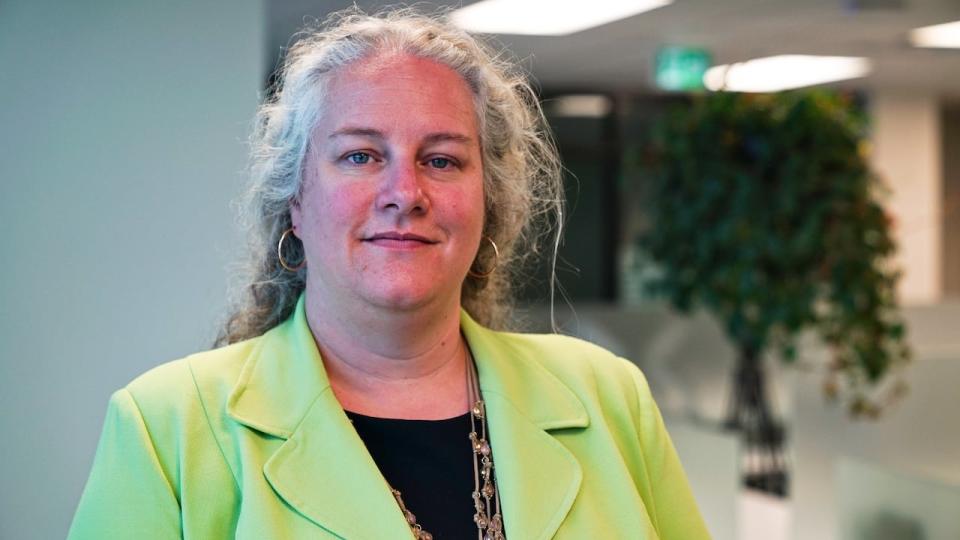Even though civil servants will have to work in-person more this fall, there won’t be additional buses added on routes in Ottawa or Gatineau to support them.
Public servants will have to work in the office at least three days per week — or four, for executives — starting on Sept. 9, a change the federal government announced last May.
Christiane Fox, deputy clerk of the Privy Council Office, told Radio-Canada the choice was made to improve performance, build a sense of collaboration, and help public servants advance their careers.
But Public Service Alliance of Canada (PSAC) national president Sharon DeSousa responded “there’s no data” to back up the government’s decision. The PSAC has challenged the decision in court.
Ottawa Mayor Mark Sutcliffe said public transit lost $9 billion dollars in fare revenue because public servants aren’t commuting downtown on the buses and O-Train, and asked the federal government to consider the impact of its decisions on the city.
As the fall approaches and public servants’ return for an extra day is imminent, OC Transpo and the Société de transport de l’Outaouais (STO) are preparing to handle more riders than expected.
STO bemoans short notice
STO President Jocelyn Blondin told Radio-Canada, with more notice, their team might have better organized the routes.
“It’s a bit disappointing” that the federal government didn’t collaborate with the STO, he said in French. “It seems to me that they could have told us … in advance.”
When the announcement was made in May, the STO had already planned the bus routes for the fall. It has not made any adjustments since then.
The STO’s public affairs officer, Yannick Boursier, told Radio-Canada that planning the network of buses takes a cycle of almost a full year, due to how many factors need to be considered.

An STO bus stops at a shelter on Wellington Street in downtown Ottawa. STO President Jocelyn Blondin told Radio-Canada that STO services are around 75 to 80 per cent of their pre-pandemic levels. (Jonathan Dupaul/CBC)
OC Transpo will be able to handle additional riders on its existing routes, according to Pat Scrimgeour, its director of transit customer systems and planning. But in June, Scrimgeour told Radio-Canada that some routes might not have capacity for all the public servants, which could lead to increased expenses and overtime.
OC Transpo has also not made any changes to its services in anticipation of the public servants’ return to work. Like the STO, Scrimgeour noted that service is planned months in advance.
On Friday, General Manager of Transit Services Renée Amilcar wrote in a memo “early observations indicate there is enough capacity” to handle growth, but “staff are ready to adjust service as needed.” She wrote staff will share their observations at the next transit commission meeting on Sept. 12.
Treasury Board Secretariat spokesperson Rola Salem told Radio-Canada the government has been in contact with OC Transpo and the STO since May to inform them about changes.
Public service workers concerned
President Jennifer Carr of the Professional Institute of the Public Service of Canada (PIPSC) said even when public servants arrive to work, the problems won’t stop there.
“It’s going to take people longer to get to work and that’s just going to add to the frustration,” she said. “Imagine that you have all this turmoil that’s happened before you get to the office and then you sit at the office and do the exact same thing that you could have done from home. It’s just going to breed resentment and anger.”
PIPSC has been making and handing out bumper stickers at events — like one lunch-hour rally on Thursday — which read: “Sorry about the traffic. I have to commute to a video call.”
Carr emphasized that the public service will lose talented employees if the government forces their hand.


Jennifer Carr is president of the Professional Institute of the Public Service of Canada. She said the federal government is sending a message to employees that the place the employees work is more important to the federal government than the value that employees bring to their work. (Matthew Kupfer/CBC)

